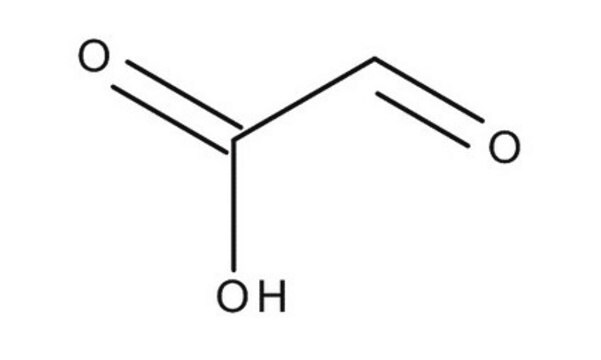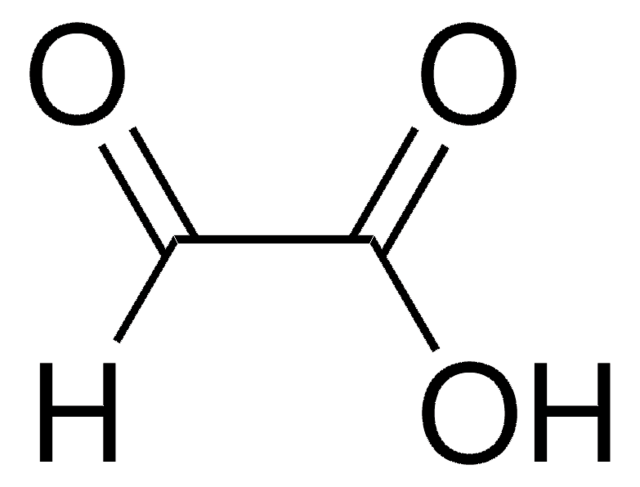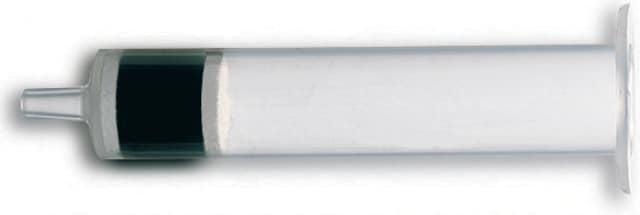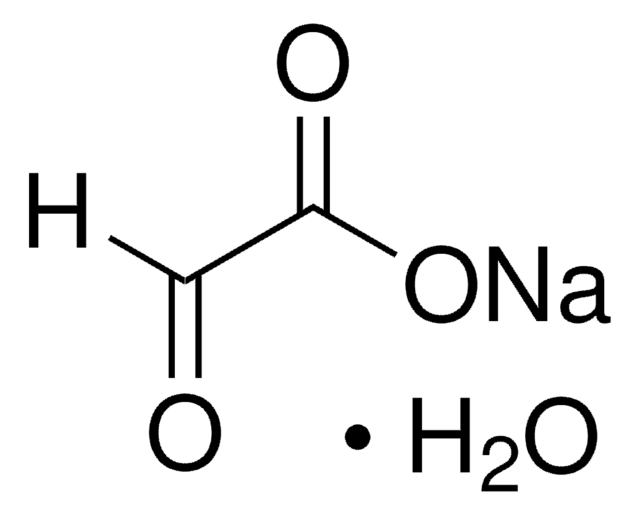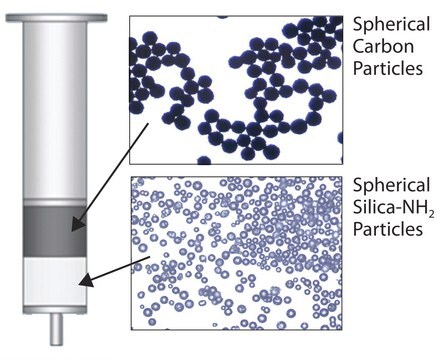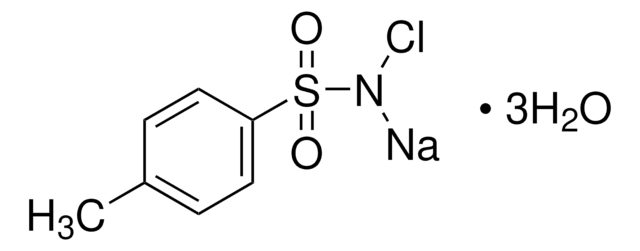8.14084
Glyoxylic acid
(50% solution in water) for synthesis
Sinónimos:
Glyoxalic acid
About This Item
Productos recomendados
vapor pressure
10 hPa ( 25 °C)
Quality Level
form
liquid
potency
2528 mg/kg LD50, oral (Rat)
>2000 mg/kg LD50, skin (Rat)
pH
0.3 (19.5 °C in H2O)
bp
111 °C/1013 hPa
mp
-93 °C
density
1.34 g/cm3 at 20 °C
storage temp.
2-30°C
Application
- Advancing mesoporous carbon synthesis for supercapacitors: Research highlights the use of glyoxylic acid as a cross-linking agent in the synthesis of mesoporous carbons, enhancing their functionality for supercapacitor applications. This study provides key insights into the design of advanced energy storage materials (Song et al., 2023).
- Thermoset films and coatings: Glyoxylic acid is utilized to create ductile, high-lignin-content thermoset films and coatings, showcasing its applicability in sustainable material engineering. This approach offers new opportunities for the development of environmentally friendly coatings and films (Boarino et al., 2023).
- Organic synthesis: A novel decarboxylative N-formylation of amines using glyoxylic acid, promoted by H2O2, has been documented, highlighting its role as a reagent in organic synthesis. This method represents a significant advancement in the synthesis of amine derivatives (Wu et al., 2023).
- Enhancing luminescence in covalent organic frameworks: A study demonstrates the incorporation of glyoxylic acid as a linker in two-dimensional covalent organic frameworks, significantly boosting their luminescence. This finding opens up new avenues for the use of these materials in optoelectronic applications (Yang et al., 2023).
Analysis Note
Density (d 20 °C/ 4 °C): 1.330 - 1.340
signalword
Danger
hcodes
Hazard Classifications
Eye Dam. 1 - Met. Corr. 1 - Skin Corr. 1 - Skin Sens. 1
Storage Class
8A - Combustible, corrosive hazardous materials
wgk_germany
WGK 1
flash_point_f
Not applicable
flash_point_c
Not applicable
Certificados de análisis (COA)
Busque Certificados de análisis (COA) introduciendo el número de lote del producto. Los números de lote se encuentran en la etiqueta del producto después de las palabras «Lot» o «Batch»
¿Ya tiene este producto?
Encuentre la documentación para los productos que ha comprado recientemente en la Biblioteca de documentos.
Nuestro equipo de científicos tiene experiencia en todas las áreas de investigación: Ciencias de la vida, Ciencia de los materiales, Síntesis química, Cromatografía, Analítica y muchas otras.
Póngase en contacto con el Servicio técnico
